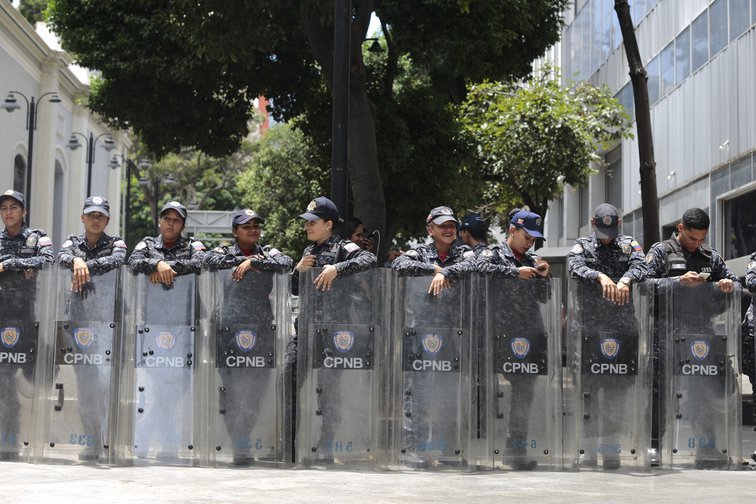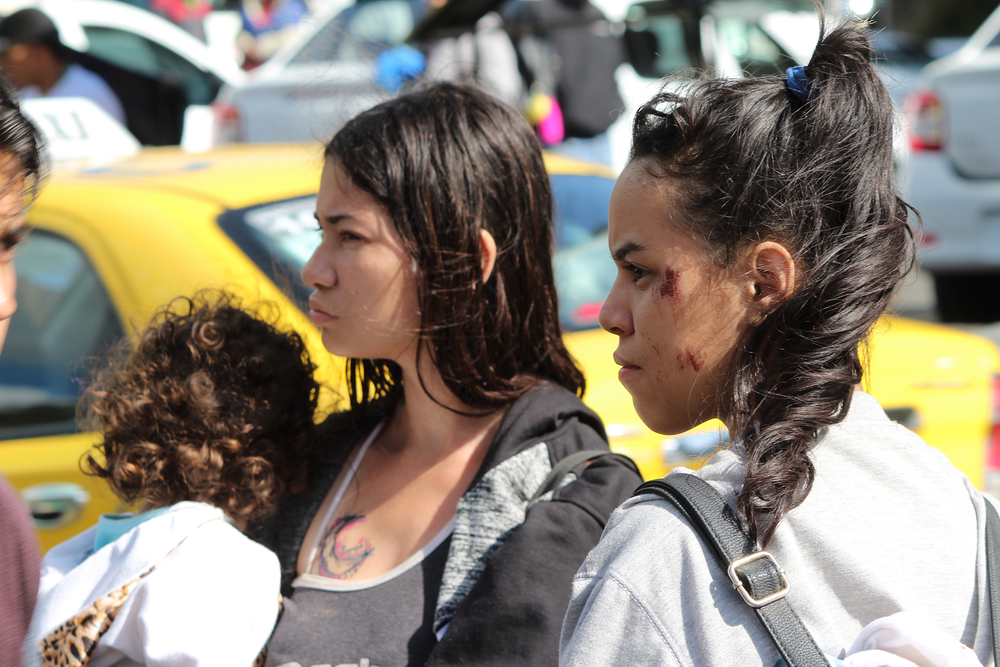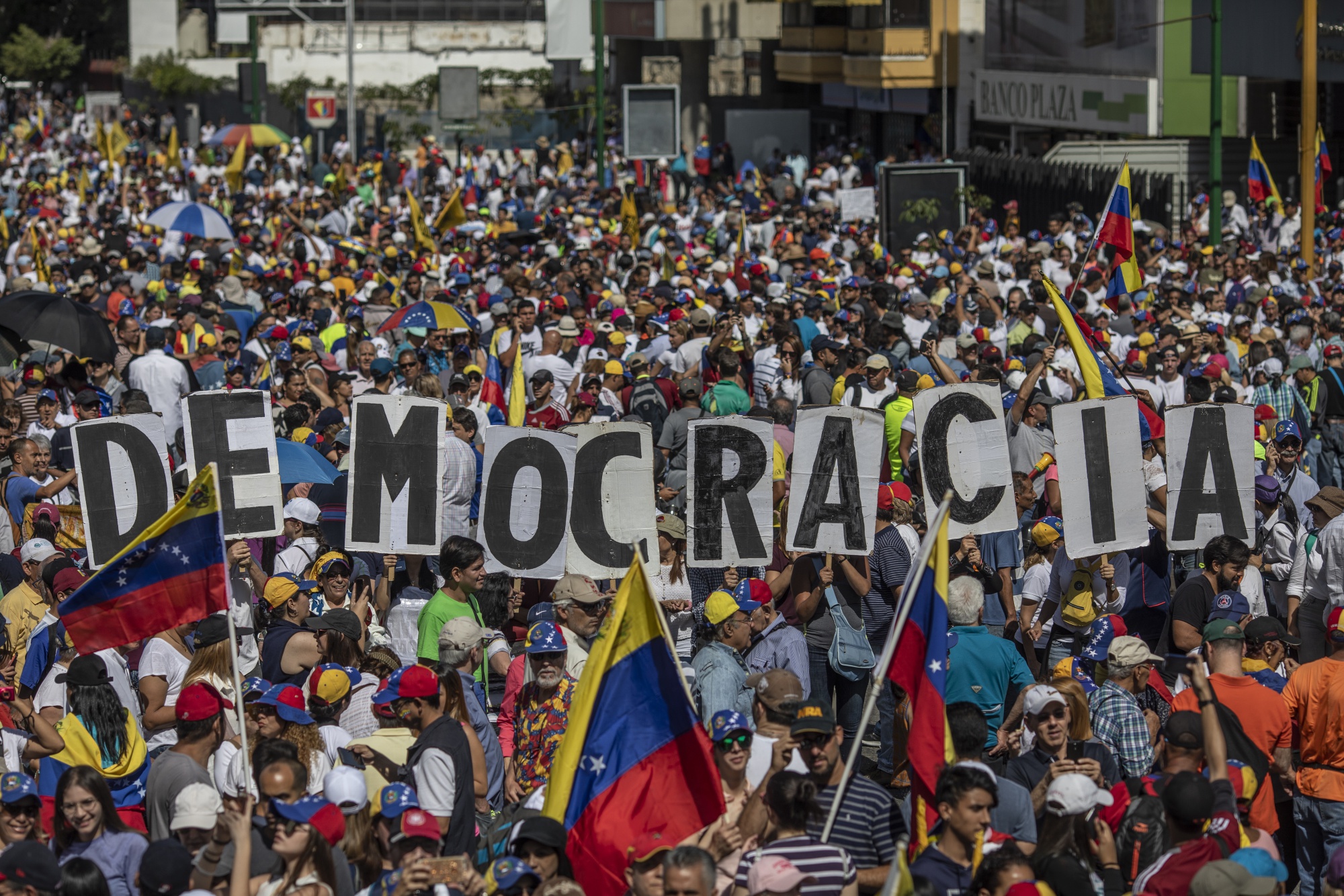Anne Applebaum is an American historian and journalist dedicated to the study of the history of communism, Russia, the rise of populism, misinformation, and propaganda. She won the Pulitzer Prize in 2004 for her book Gulag: A History, and the United States National Book Prize in 2012 for Iron Curtain. Her most recent book is Red Famine: Stalin’s War on Ukraine. Applebaum visited Venezuela at the initiative of the Central University of Venezuela and other social organizations in the country.
The two hundred and ninety-eight passengers of the Malaysia Airlines flight MH17 never learned what happened to them on the night of July 17, 2014. It was the time of war in Donbas when pro-Russian rebels rose in arms against the new Ukrainian government. A land-to-air missile shot down the plane flying from Amsterdam to Kuala Lumpur. While the world lamented the fallen civilians, an unprecedented communication operation was launched from Russia: they saturated the public opinion with hypotheses about the cause of the catastrophe.
These had a wide range of truthfulness. The versions ranged from the possible to the fantastic. “It was the army of Ukraine,” “the CIA shot down the plane,” “the plane fell by a bomb previously installed in Amsterdam,” “the plane was hit by a meteorite,” “the 298 passengers were already dead and their bodies were used to set up a scene to discredit Russia.”
Anne Applebaum uses the case of the Malaysia Airlines plane as an example of the Russian theory of information control: flooding the information ecosystem with hundreds of theories, with the aim that, in the end, nobody believes anything and nobody knows who to believe. The objective is the discredit. After all versions were disclosed, the responsibility of the Russian army in the death of the passengers of the Malaysia Airlines plane is just one more idea that circulates in the tide of false statements. Mission accomplished: skepticism has been installed.
We are in front of El Ávila, sitting on the edge of the pool at the hotel where Applebaum is staying and keeping a busy schedule. They bring us coffee and water. She takes the bottle in her hands but does not open it. She warns that the other theory of information control is the Chinese. As technology changes, resistance tactics do too. The Internet is now the center of attention of authoritarian governments. “In China, they employ tens of thousands of people to monitor what is being published on the Internet. They create social control systems to allow the government to follow people and know what those people are doing.”
The coronavirus epidemic in China is a recent and ongoing test. Dr. Li Wenliang published a post last December warning about the presence of mysterious cases in his hospital with symptoms similar to SARS, an epidemic that killed more than eight hundred people in 2002. He suggested acting fast, taking precautions, and using protective equipment to prevent medical personnel from becoming infected. Four days after the message, security forces stormed his home and he was later accused of “making false comments” and promoting social unrest. He signed an agreement where he was forced not to discuss the disease in public.
The epidemic in China reminds Applebaum of Chernobyl. “They tried to hide something unquestionable because eventually, everyone was going to find out. These regimes try to have an image of being good at technology and part of their legitimacy comes from an image of efficiency and that they get things done. Saying nothing about the coronavirus is a way to protect that image. The Chinese government needs to give an image of modernity. Not all regimes care about that, but they do. Suppressing news is a classic way of trying to maintain the legitimacy of the regime.”
Li Wenliang was diagnosed with coronavirus weeks after signing the declaration. Already convalescent, he dedicated himself to informing international media about the situation of the epidemic. He died last week and joined the more than one thousand fatalities who have claimed the epidemic he warned about and that continues to spread exponentially.
Applebaum wonders: “Which of the two information control theories applies to Venezuela? I do not know. Maybe both,” she answers.
These are difficult times for journalism. There is a crisis in business models, and besides, misinformation and manipulation strategies pose important challenges to the traditional tasks of reporters. “It’s hard to get people to trust what you write.” Anyone might think that data verification is an instrument that helps counteract misinformation, but there is another layer of the problem that cannot be ignored: “The verification of the facts is only successful in people who are interested in the facts.”
Information is not the only source of control of authoritarian governments. In Applebaum’s most recent book, Red Famine: Stalin’s war on Ukraine, it is detailed how Stalin used food access to eliminate a part of the population that was inconvenient. The political use of hunger has a long tradition. “People have probably controlled access to food since forever. One way to kill your enemy is to make him hungry to submit.” And the combination of poverty with access to food makes control capacity even more effective. “When people are very poor, they don’t have time for politics. It is known that many of the important revolutions occur when the economy is improving, such as the French Revolution, or the Russian Revolution, which came after a period of growth. If you are poor and depend on the state, you are less likely to protest.”
Applebaum affirms that countries become symbols in the international scene. Today, Venezuela is used in many places as a representation of failed socialism. “But that doesn’t tell the whole story. The problem in Venezuela is also the assault on the institutions, the courts, and the electoral system.” Beyond the instrumental use of the Venezuelan case in international politics, Applebaum warns about the consequences of certain doctrines: “Being proud of being a Marxist or putting yourself in the tradition of the Soviet Union implies that you are very ignorant or that you approve of a bloody tradition and the death of millions of people at the hands of these regimes.”
The American historian witnessed the fall of the Berlin Wall and the collapse of communism. Those were optimistic times. Thirty years later, she recognizes that anti-democratic drives remain present. “There have always been and always will be regimes that aspire and try to carry out the totalitarian dream. Maybe in 1989, I thought it was all over. Now I think that we will always have to fight against that, against someone’s desire to control everything.”




